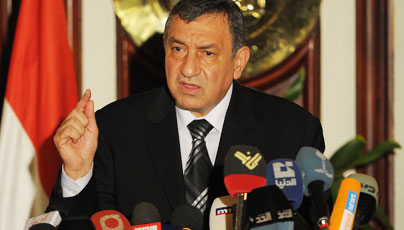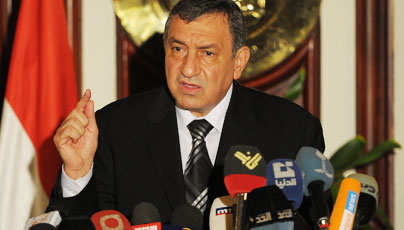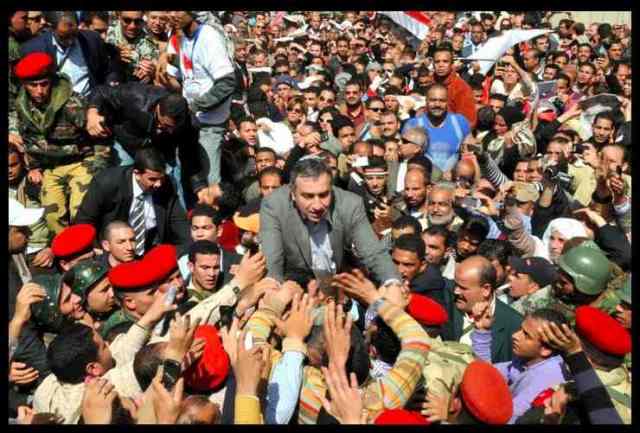The Egyptian prime minister has vowed to put in jail any member of the security forces accused of killing protesters during the January uprising.
| The Egyptian PM, Dr. Essam Sharaf |
Essam Sharaf, the Egyptian prime minister, has vowed to sack any member of the security forces accused of killing protesters during the January uprising.
"I have issued new instructions as a matter of urgency for the minister of interior to suspend any officers implicated in the killing of protesters," Sharaf said in a statement on Saturday. "I have also demanded a swift return to the highest levels of security on the streets of Egypt to make them safe again and give our citizens the dignity they deserve."
Sharaf's statement came in response to the renewal of mass protests in Egypt. Tens of thousands of people gathered in central Cairo's Tahrir Square and other towns on Friday in what many hoped would amount to a "second revolution" to speed up reforms.
The protesters called on Sharaf's government and the military council that has ultimate power in post-revolution Egypt to reform the country's security services, bring to justice police officers accused of killing protesters and put on trial Mubarak and other members of his ousted regime.
| Egypt PM at Tahrir Square |
Late on Saturday, authorities ordered the arrest of three police officers who are suspected of torturing to death a conservative Muslim man they had detained in the wake of a New Year's Eve church bombing in Alexandria.
'HUNDREDS' OF OFFICERS TO LOSE THEIR JOBS
Interior Minister Mansour el-Essawi had already announced, on Thursday, that he would "shake up" the ministry around the same time that employees would be subject to their annual performance review. Hundreds of officers suspected of using violence against protesters would lose their jobs, he said.
Sources said that cull of ministry employees, which will go into effect on August 1, will include 18 generals, nine brigadiers and dozens of mid-level and junior officers. Osama el-Teweel, the head of police in Suez, has already been replaced.
Egyptians have expressed widespread frustration over the lack of change since Mubarak's February 11 toppling, complaining that although Mubarak and many hated figures under him have lost power, the key elements of his regime remain in the judiciary, the police and the civil service.
The uprising, which began on January 25, left 846 people dead and more than 6,000 injured.
Mubarak is due to stand trial on August 3 for the ordering the killing of protesters - a charge that could carry the death penalty.
Sharaf said he also urged the public prosecutor to put together a team to speed up investigations into cases about the killing of protesters and that the prosecutor had decided to appeal all acquittals that had been issued in such cases.


